
Special Assignment
The Gravity of LCpl. Lance T. Graham
November 10, 2006


SSgt. Randall Watkins, Cpl. Stan Mayer, LCpl. Lance Graham Photo courtesy GySgt. Michael Brady
who and why:
Knowing LCpl. Graham
San Antonio, TX, Marine Corps Base Quantico, VA
When did he find solace, when was he delivered from his anguish? “When I realized that Lance’s death was God’s will.”
In the middle of the night Joseph Graham sat at a San Antone cantina. There were more staff in the restaurant than customers, and despite his stoic face, he revealed. His son’s death has torn his life wide open. Maybe he should be stronger; he himself saw combat at length when in the Army in Viet Nam. He’s been on the elite San Antonio motorcycle unit for years. Hell of many kinds is common ground.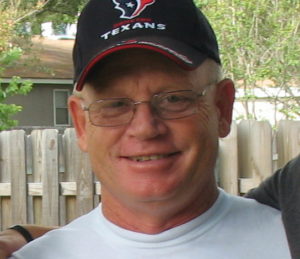
Yet after that day before Mother’s Day 2005, he went weeks without much sleep. Night was a tortured time filled with distraught dreaming and mournful memories. For months his mind was racked with misgivings and second guessing.
Before leaving for training Lance used a piece of rubber from a tire, some string and a Sharpie to create a bracelet for himself. “Die Strong,” it read. After Lance’s death, Joseph’s sons Kyle and Ryan had a manufacturer create a version of that similar to Lance Armstrong’s yellow “Live Strong,” bracelet, except in black. They had a limited number made, but they are now something of a cult item amongst Lance’s loved ones – and others who knew him.
Today he’s not serene by far. Yet he’s useful, loves his life and deeply loves those Marines who were with Lance in the Corps. His sons, have the biggest part of his heart. Maybe someday he’ll leave Texas and return to his Indiana roots, but not before spending many more years with those two. Meanwhile his days hunting and hanging out with MAP 7 Marines, especially with platoon commander Sgt. Randall Watkins, bring him the most peace.
“Of course he shoulders it, any good leader would.” Cpl. Zane Childress, Sgt. Randall Watkins’ MAP 7 Bronze Star brother and Texas State peer.
On the phone MAP 7 platoon commander Sgt. Randall Watkins’ voice was stressed. That stress unique to a highly-amped Marine NCO. His answers were quick and filled with cutting truth – and a deep, deep pain. And age. He sounded 45. He’s 25.
From San Marcos, TX he is heavily burdened with the deaths of Graham, Cepeda, Wiener and Marzano. If only he hadn’t ordered the dismount to reverse the convoy.
Never mind that he was critically wounded in the ambush. Never mind that no convoy could have been reversed on that Haditha street without a dismount. Never mind that suicide bomber would have found them no matter where they were.
Having a beer with Cpl. Rice in Joseph’s backyard, he was loose, and could produce a great smile. But the wounds requiring a medical discharge, including wounds to his face, neck, chest, arm and nerves – weren’t what tears him up.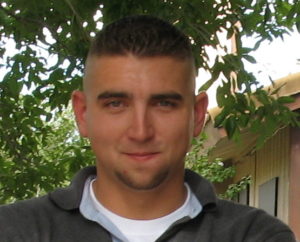
Lance’s courage reappeared over and over again. It was a very happy day when Watkins was able to finally place Lance as his lead gunner. “Front gunner is the most stressed Marine in the platoon yet he never got distressed.” That was the post Lance had May 7.
“Lance never once questioned me,” Watkins recalls. Several weeks at 29 Palms weren’t what this active duty infantry Marine would have liked to get his reserve platoon on line. So he tried to pull out each Marine’s assets. Lance’s maturity and ability to know when to work and when to play made it hard for Watkins to maintain his leadership distance. “He never once disrespected me when it was business time.”
During those weeks Lance once lost his gas mask. When packing his sea bag to move from one spot in training to another, it fell behind his bunk; anyway when he needed it, he didn’t have it.
He showed complete responsibility from the beginning. “He didn�t talk to anyone, he came straight to me.”
Normally Watkins would have been ripping someone’s head off. “The way he came to me, there was no way I could be mad at him; he said, ‘I know I’m going to be a PFC, but.. We found it, no foul, no loss.”
As soon as his medical wounds allowed he shadowed the Graham home doorstep. “I am responsible for your son’s death,” he told Joseph.
“Lance was a Christian and that�s what comforts me – is knowing that I will see him again.”
Tall. Slim. Quiet and unassuming. In a phone conversation Sherry Graham tried to illustrate her son’s compassionate nature. She recalls talking to him as he packed for his 29 Palms deployment training.
“When he was getting ready to leave we were having a heart to heart and I said, ‘I just feel bad that I didn’t put you on my lap and let the dishes go,’ and he said, ‘Don’t have regrets, I turned out fine.'”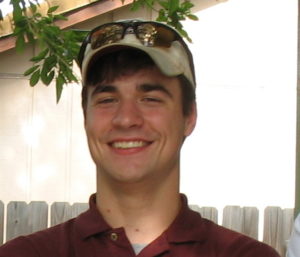
Those memories comfort her, but more, she knows he was forgiving of others, he cared how others felt. Sherry also seemed to intuitively know that war is a walk on the fine line between sin and sainthood.
“He accepted Christ as his Savior when he was a kid. Even though the settings the Marines are in require a strong and tough person, they are compassionate. They have to be…to love and back each other, the love for their country, and the willingness to to put themselves in harm’s way so people of another country can have hope. But he knew God forgave him, he could get down on everybody else�s level too.”
“I’m very proud of Lance and all he believed in an stood for.”
At a bar-b-que Joseph hosted to gather these loved ones, she asked Stan for the details of Lance’s death. He told her the truth. She knows the struggles he, Watkins and Childress have carried. However she expressed no concern that Lance suffered or was abandoned.
Sherry is reminded of her son’s extraordinary humility by knowing his comrades “All of them were so brave and willing to go to the ends of the earth for each other.”
It would be impossible for any mother to survive such a loss easily though. “My faith is what got me through this.”
“He had a reason that He took Lance and a reason that He spared Stan. I thought, it’s as plain as day, you have a gift that God gave you and you are intimate with people.” Sherry Graham regarding Cpl. Stan Mayer’s miraculous survival.
Despite his six-foot-five-inch Marine poster-boy frame, Cpl. Stan Mayer’s poetic soul is not hard to detect. When the subject of Lance was raised, a curtain of sorrow came over his pale green eyes and he looked downward. “He wouldn�t have left me behind,” he said seated in a Quantico deli on a recent drill weekend.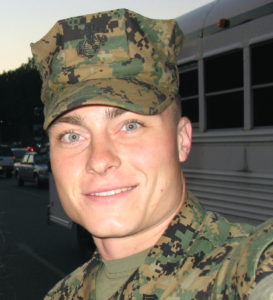
His impenetrable perspective. There’s no evidence to support his thinking that he abandoned Lance. But engraved on his heart is a moment in time that he revisits many moments of each hour. “I’ve got a lot of pressure on me from guys who aren’t around any more to pressure me.”
Mayer is a passionate man who deeply loved those Marines who faced the devil alongside him. Especially LCpl. Lance Graham, whose death has taken an horrific toll on him.
“The thing is Lance could switch gears. He could dummy himself up, then travel the world, then muscle around with Jeff [Schuller]. He had a way of knowing how to read people. He had a lot under his belt. It made him more approachable.”
Lance’s ability to lead, he was gunner in the convoy’s lead vehicle which required moment to moment decisions to shoot or not shoot – and his ability to be lead, was a powerful example to Mayer and others.
“Watkins loved him,” Mayer said of the platoon commander. “Watkins had a lot stress and he could count on Lance to do watch or clean machine guns for those who wanted to call their family.”
Although Stan spent a week in the hospital for the scorching over much of his torso when that suicide bomb exploded, he stayed in Iraq through the rest of the deployment – till October 2005. In that time he lost more Marine friends as 3/25 suffered extraordinary losses that summer. He and Sgt. Jeff Schuller were two May 7 survivors filled with regret about Lance which has since bonded them permanently.
How does he manage the regret he feels at 25, with decades of future that lay ahead of him? “…you have a reverence for it; keep it in our hearts and try not to let it debilitate us.”
An English major at Kent State, Stan has started a book about that deployment, possibly titled, “Lines in the Sand.”
“Forty minutes in May,” he said have to be revealed on his own terms. “I have to vomit this war out somehow.”
“I will not ever let my brother’s sacrifice be forgotten.”
On an evening walk around San Antonio neighborhood, Lance’s older brother Ryan is warm and happily reflective about the short and powerful life Lance led.
Lance was a free sprit, but not always an efficient one. Yet as his high school years passed and his focus of serving his community through volunteer fire fighting and onto the Marine Corps, Ryan said Lance matured.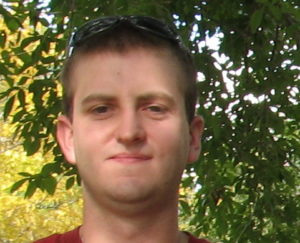
His sense of humor always outweighed his burden to his older brother, often needing another $20 to get through the weekend, Ryan recalls.
Cynical is how Ryan describes his own outlook. Yet when it comes to Lance and the Marines who lived and died with him, Ryan is profoundly affected for the better.
“I’m a negative person but it fills me with pride that he has had an effect on all those people.”
Ryan works in banking for the country’s premier financial services organization of military members and their families, USAA. In that environment he is constantly exposed to those who know the road he and his family have walked. So he is surrounded by support – and able to offer the same.
And to those closest to the fallen of this country he’s clear: “I’d say be proud that he or she was willing to lay down their life for something they believed in.”
“The greater good was served”
“He’s such a great kid, I really pulled for him to be in our platoon,” Cpl. Mayer on Aaron Rice.
Two things about LCpl. Aaron Rice strike an observer: an absence of bitterness and his maturity in humor. It’s hard to remember that he’s 23.
“I didn’t struggle with losing my leg. I struggled with leaving the Corps.”
He tried repeatedly to find a way to continue to serve. Aaron’s recollections of the land mine explosion are fleeting, but he recalls an act by Corbin set the course for his recovery. As he laid in the back of his destroyed Humvee, Corbin held him in something of a head-lock, keeping Aaron from seeing what was left of his leg. An acceptance set in. Aaron said he hasn’t had a trauma of the loss. The loss was that of his future as a Marine.
As Student Association Attorney General at Mississippi State where he’s a political science major, Aaron is moving along at quite a clip. He cranked through his rehab at Bethesda, then trained and participated in the Army Ten Miler race.
It’s all about Kelly, his wife. In Joseph’s backyard he and Watkins described their time together, the easy and not-so-easy. Clearly he remained engaged with his platoon mates – which included daily discussion with vulgar detail (practically a necessity for their humorous distraction). Yet he did not sacrifice Kelly or their relationship as fodder for conversation. A Marine’s Marine and a gentleman at the same time.
Negligent discharges. Not a happy occurrence during training. With high ranking Marine officers all around. When you’re the youngest in the platoon. But that’s just what happened to Aaron at March AFB. He so wanted to learn new weapons, to be diverse in weaponry, like Graham. “I wanted to crawl into a hole,” he recalled.
Although no one was hurt, all hell broke loose, and the one he thought would rip him the most came to his rescue, Schuller.
“It’s an easy mistake,” Jeff screamed at the crowd.
But it was Graham who eased the mental load for Aaron. At the end of the day, Lance came to him and had a one-on-one conversation with him. He pulled out his book, a little notebook where he had written down all his notes about each weapon, “he showed me everything. He said, ‘that could just as easily happen to me.”
Accident or no, the very next day Graham had a negligent discharge on his 240G.
“It feels even more right to fulfill mine and continue his,” Kyle Graham on his brother’s dream and love of fire fighting.
Before he was a Marine, Lance Graham was a fire fighter. He was a volunteer with the Selma, TX fire department during and after high school. And Kyle is following suit with the San Antonio fire department. Well into the civil service application and testing process, Kyle’s proud father bragged on his youngest son’s high test scores.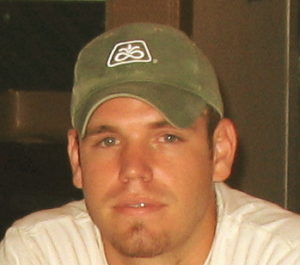
On his brother’s death, Kyle describes a unique perspective: “I don’t think he would be selfish and ask for a second chance. I don’t think he would have wanted it to be any different.”
This things-are-as-they-should-be attitude keeps Kyle grounded. But he desperately misses the one he looked up to.
“I was the only lucky one who grew up underneath him. I got a high tolerance for pain and I can thank him for that.”
More seriously, he continues, “I was 17 or 18 and he sat me down at a friend’s house and said, ‘now don’t be like me. I drink a lot and I smoke and I dip and I’m never there, at home, don’t be like me.’ He wanted me to be close to home for my parents.”
Unfortunately Kyle could not accept such instruction, “I just wanted to be just like him.”
“We left because we were afraid.”
Sergeant Jeff Schuller stands out in a crowd – in many ways. His Cleveland State University wrestling champion physique is massive. Not someone most of us would ever want to meet on the mat. Add to that his throaty voice and boisterous attitude which made conversations, including interviews, rather intense.
So it’s rather hard to believe that this Marine, who took the turret when Cpl. Kalinowski was injured and essentially secured the ambushed platoon to figure a way out, that fear ever dictated actions that he carries to this day.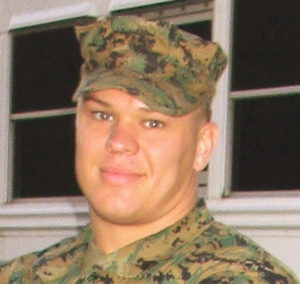
Yet sitting in Quantico Town, the civilian town inside Marine Corps Base Quantico, VA, eating dinner with others from 3/25, his position will not allow discussion.
“We left because we were afraid.”
“We were scared and that’s it.”
“The 7-ton was rolling, it was the only vehicle we had… We could have stopped Corbin, but we were scared and wanted to be out of there.”
“We left him behind, period.”
As Joseph Graham later put it, “welcome to Schullerville.”
Schuller would not entertain any other position. He would not explain how to reconcile that thinking with the overwhelming evidence that Graham was not left behind. He was protected until the fight was over, when his body could be retrieved. He appears a great big, brash, bear of a heartbroken man.
The Marines in the ambush that killed Graham agree a very deserved Schuller was properly awarded the Silver Star.
Unexpectedly, a thoughtful side of Schuller emerged – when he thought no one was looking. After dinner he was given a copy of a very well written article in the San Antonio Express News about Graham’s letter to his family upon his death. Schuller quietly read it carefully. He carried it outside and mixed in with Marines mulling around on the sidewalk. He continued to read and when he was finished he tucked the story in his uniform and gazed for a long moment toward the distant east.